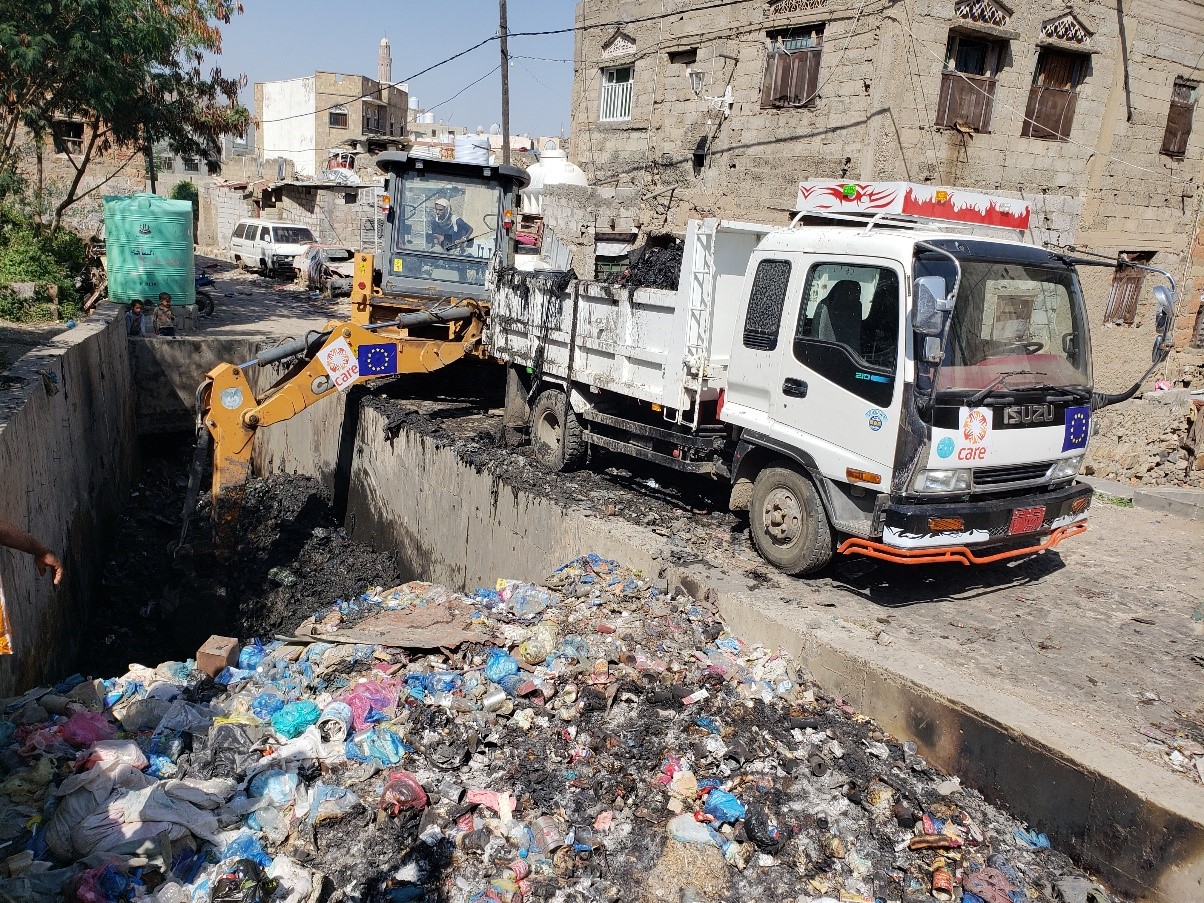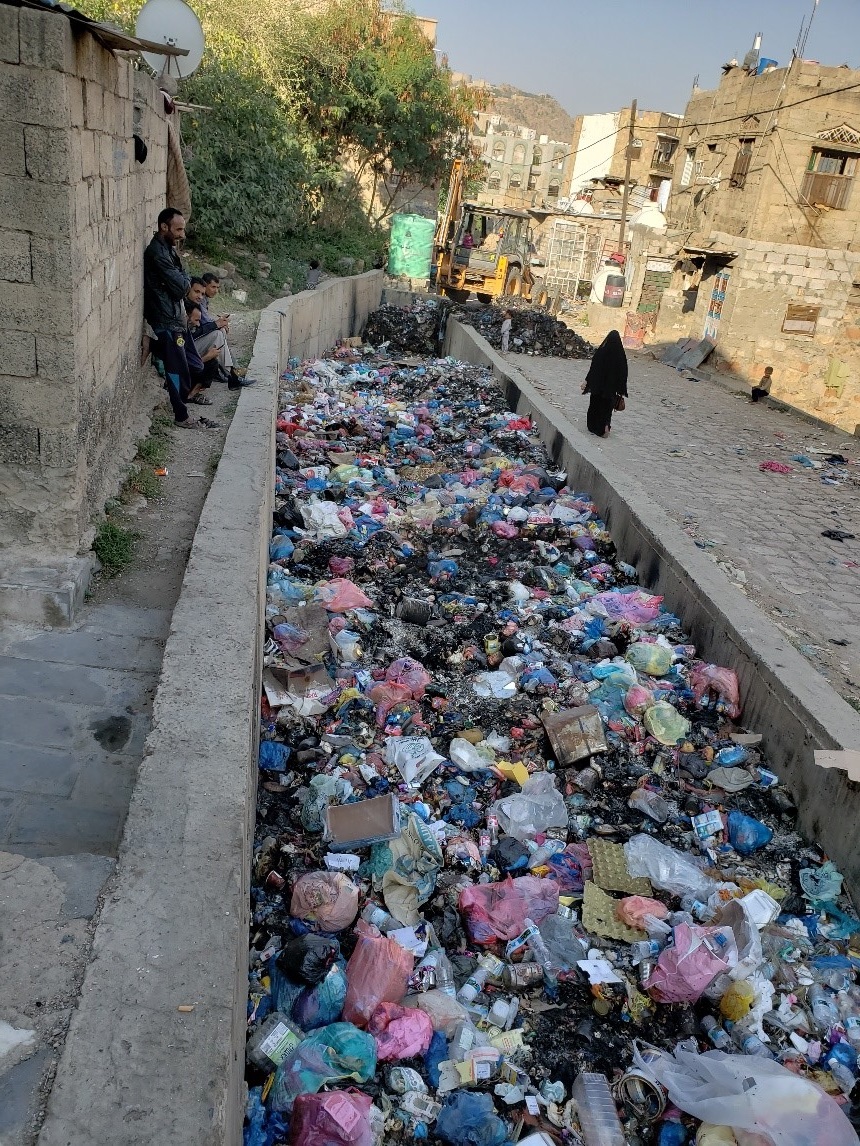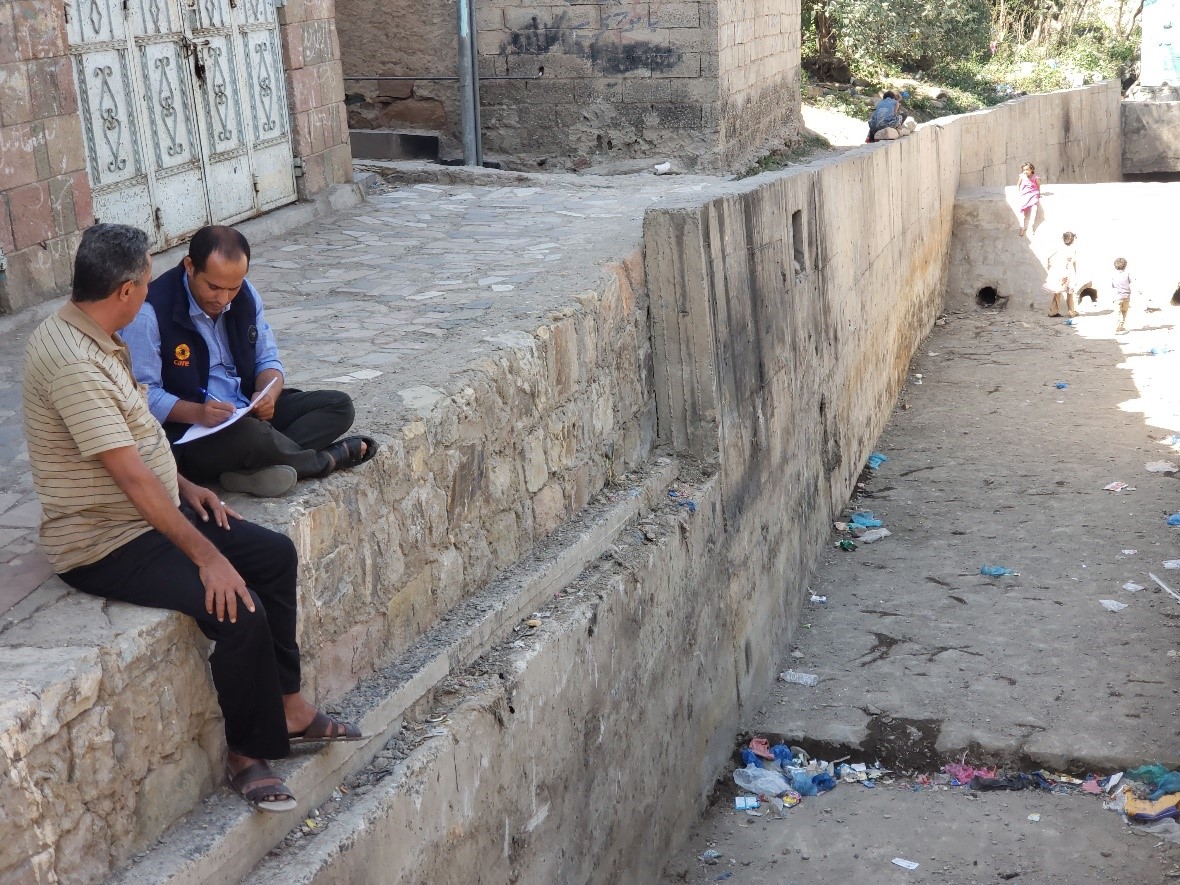Abdullah Ahmed, one of the residents in this neighbourhood says: “The canal was completely filled with rubbish and when the rains come, water goes into neighbouring houses with all the foul-smelling dirt and soil from years ago. It puts citizens’ lives at risk and brings epidemics and diseases like cholera, dengue fever and diarrhoea.
“If you have been to hospitals and healthcare facilities, you will have seen the dire situation for patients visiting these health facilities. Most of them have diseases or viral fever, especially the children.”
In the midst of these difficulties, with funding from the European Union (ECHO), CARE has intervened with a life-saving project involving the removal of solid waste and rubbish from the streets and drainage of the canals.
“The rubbish had been overwhelming the population and became a source of deadly epidemics four years ago. CARE cleaned our area, and now we feel that it can breathe again after it was suffocated,” says Abdullah.
Hameed Ahmed, the head of a family who lives on the edge of the canal, says: “In this area, approximately 400 families live along or near the canal and people have been throwing rubbish into the canal since the regular collections stopped. Due to the daily struggles people are facing, they have become indifferent to everything, which has caused huge psychological and hygiene problems. For me, If I could’ve moved to another place, I would do it.
“I couldn’t even open the window to breathe and I found flies everywhere. Cholera spread very severely, sometimes three to four people in a family were infected and others with dengue or viral fever. This canal has become a place for reptiles and insects like cockroaches, mice and snakes that we had to kill from time to time – imagine your daily life in such an environment!
“After the clean-up we feel relieved and in high spirits to be able to go about our daily lives normally. We allow children to go out to play and they are safe – contrary to what was before.
“What can stop this absurdity is raising awareness in the community about the importance of hygiene. I have noticed that CARE has trained a health awareness team in order to do this. We also need an iron net as a cover on the canal, to stop people throwing rubbish into it.” Hameed concluded: “We hope CARE will take this proposal into consideration in future projects.”


